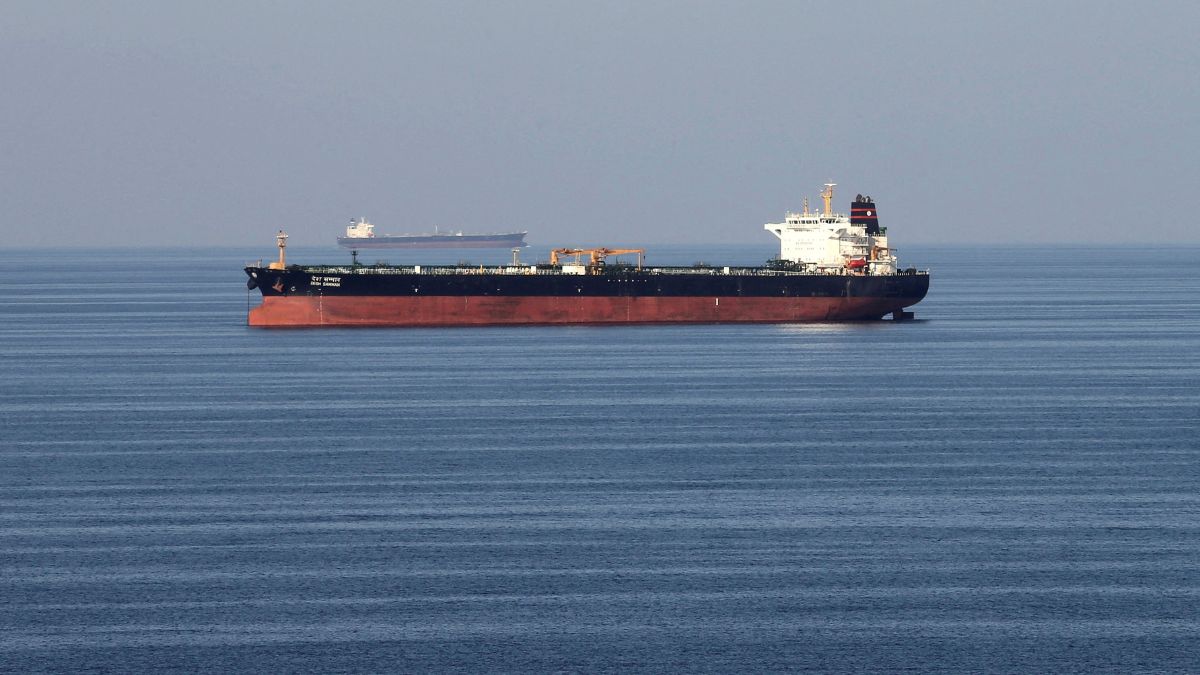India’s GDP will suffer by 0.5 per cent if Iran closes Strait of Hormuz: Analyst
 Oil tankers pass through the Strait of Hormuz | Reuters
Oil tankers pass through the Strait of Hormuz | Reuters
With tensions rising in the Middle East after the US hit three of Iran’s nuclear sites, Iran has warned that it may take measures to close the Strait of Hormuz, a strait between the Persian Gulf and the Gulf of Oman.
Hossein Shariatmadari, Ali Khamenei’s representative, told Iran's Kayhan Newspaper that as a first step, Iran would "launch a missile strike on the US naval fleet in Bahrain and simultaneously close the Strait of Hormuz to American, British, German, and French ships."
The Strait, which is about 21km wide at its narrowest point and sits between Iran and Oman, is a critical route for nearly 20% of the global oil supply. It provides passage from the Persian Gulf to the Arabian Sea and carries oil from countries like Saudi Arabia, UAE, Kuwait, and Iraq.
According to Foreign Affairs Expert Robinder Sachdev, if Iran closes the Strait of Hormuz, India will suffer. Not just 20 per cent of crude oil, 25 per cent of the world's natural gas also flows through the Strait. "If the Strait is choked, oil prices would go up, inflation will rise and according to estimates for every ten-dollar increase in the price of crude oil, India’s GDP will suffer by 0.5 per cent," Sachdev told ANI.
Global trade analytics firm Kpler says India has increased its oil imports from Russia and the United States in June. Indian oil refiners are expected to import 2-2.2 million barrels per day of Russian crude oil in June which exceeds the total volume imported from Iraq, Saudi Arabia, UAE and Kuwait which stands at 2 million bpd this month.
The oil from Russia travels via the Suez Canal, Cape of Good Hope and the Pacific away from Hormuz. India also has strategic reserves to fall back on for 9-10 days to bridge any shortfall.
Sources say that India imports nearly 40% of its crude oil and 50% of liquefied natural gas (LNG) through the Strait of Hormuz. Kpler has said that there is a low possibility of a full closure of Hormuz due to Iran’s dependence on it, making it counterproductive. While Iran has threatened to close the Strait before, it never actually did because the country also relies on exports from the oil-producing nations. China, which is Iran’s largest importer of crude oil, will also be affected if the Strait were shut down.
Mumbai-based exporter and founder chairman of Technocraft Industries India Sharad Kumar Saraf told PTU that oil tankers will find new routes in case of closure of the Strait, but that will also push crude oil prices. "It will have implications on inflation as crude oil prices are the mother of all prices," he added.
Middle East